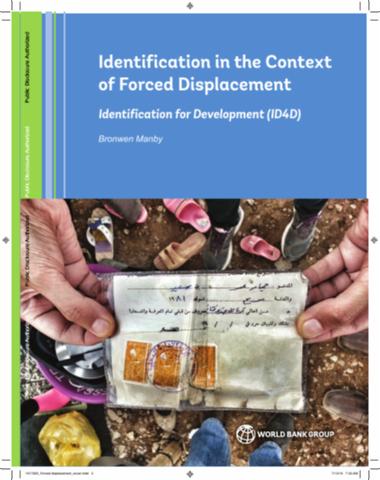The World Bank is a vital source of financial and technical assistance to developing countries around the world. We are not a bank in the ordinary sense but a unique partnership to reduce poverty and support development. The World Bank Group has two ambitious goals: End extreme poverty within a generation and boost shared prosperity.
- To end extreme poverty, the Bank's goal is to decrease the percentage of people living on less than $1.25 a day to no more than 3% by 2030.
- To promote shared prosperity, the goal is to promote income growth of the bottom 40% of the population in each country.
The World Bank Group comprises five institutions managed by their member countries.
The World Bank Group and Land: Working to protect the rights of existing land users and to help secure benefits for smallholder farmers
The World Bank (IBRD and IDA) interacts primarily with governments to increase agricultural productivity, strengthen land tenure policies and improve land governance. More than 90% of the World Bank’s agriculture portfolio focuses on the productivity and access to markets by small holder farmers. Ten percent of our projects focus on the governance of land tenure.
Similarly, investments by the International Finance Corporation (IFC), the World Bank Group’s private sector arm, including those in larger scale enterprises, overwhelmingly support smallholder farmers through improved access to finance, inputs and markets, and as direct suppliers. IFC invests in environmentally and socially sustainable private enterprises in all parts of the value chain (inputs such as irrigation and fertilizers, primary production, processing, transport and storage, traders, and risk management facilities including weather/crop insurance, warehouse financing, etc
For more information, visit the World Bank Group and land and food security (https://www.worldbank.org/en/topic/agriculture/brief/land-and-food-security1
Resources
Displaying 331 - 335 of 4906From Oil to Cities
The Nigeria Urbanization Review serves the critical and timely purpose of understanding the challenges and opportunities of urbanization in Nigeria. The country’s rapid urban population growth and expansion is examined in relation to the account of its recent urban economic growth in order to seek for ways to finance urban development, particularly the provision of urban public goods and services. The objective of this analytical program is to provide diagnostic tools to inform policy dialogue and investment priorities on urbanization.
Addressing Climate Challenges in ECA Cities
Much of the world’s built environment is
found in urban areas, and cities are thought to be
responsible for up to 70 percent of global greenhouse gas
(GHG) emissions, and up to 80 percent of primary energy
demand. Most of the energy consumed in the world fuels urban
industry, powers urban homes and offices, and moves people
within and between cities. This paper is about climate
change mitigation in cities, and will primarily look at how
Connecting to Compete 2010
This report presents the findings of the
second edition of Connecting to Compete, a report on the new
dataset for the 2010 Logistics Performance Index (LPI) and
its component indicators. Based on a worldwide survey of
global freight forwarders and express carriers, the LPI is a
benchmarking tool developed by the World Bank that measures
performance along the logistics supply chain within a
country. The index can help countries identify challenges
Illegal Forest Production and Trade
This paper looks at the evidence on the
magnitude and impacts of forest illegal acts, examines the
vulnerabilities of the forest sector, and proposes a
strategy for combating forest crime. Forest crime
prominently includes illegal logging but acts against the
law also affect other sector operations such as forest
products transport, industrial processing, and trade. Almost
universally, criminal exploitation of forest products and
Identification in the Context of Forced Displacement
Lack of identity documents is an important obstacle to the protection of people forced to leave their homes by conflict, persecution, or natural disaster. At the most basic level, a person lacking identity documents cannot travel through the legal channels. Lack of identification can make people more vulnerable to trafficking, for example by making it more difficult to prove a person’s age or family relationships. Those who lack identity documents may face greater difficulties proving their entitlement to nationality or to refugee status.







